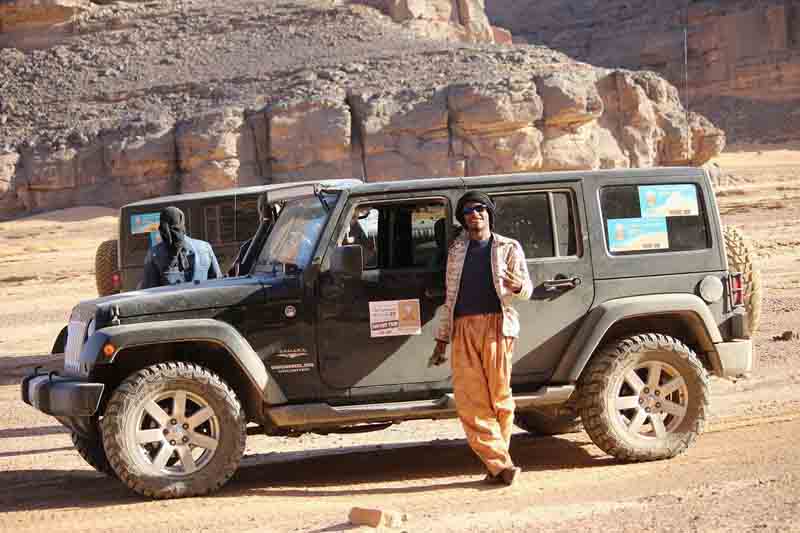Oswa Shafei is a 19-year-old student and hails from Benghazi but who grew up between there and Atlanta in the USA. She is currently at university in Canada. She sent her Op-Ed to the Libya Herald to see if we would publish it.
Normally we do not take opinion articles from contributors we do not know. Indeed normally we publish very few Op-Eds. We see our role as providing facts, not opinions. However, we also felt that the call she makes so clearly deserved to be heard, so we make no apologies for breaking our rules and publishing it.
By Oswa Shafei.
Growing up, nobody knew on a map where I was from. “Libya,” I told them, and always immediately followed up with, “It’s next to Egypt”. I enjoyed those days of relative obscurity; my country was a mystery, something new and unexplored that my white friends would believe all of my misleading stories and information about.
“There’s no racism in Libya,” I told them. “It’s not like here. It is, after all, an African country.”
My word was taken at face value. I painted for them a picture of a Mediterranean heaven: palm trees, beaches, oil wealth, and equality for all. The only problem, I told them, was the crazy dictator Qaddafi. He was, in my opinion, holding Libya back from greatness, from becoming “the next Dubai”.
But the revolution came and went and an ugly side began to champion Libya’s face in popular culture: one of violence and racism. As the country descended into chaos, it began to teem with weapons and criminals released from “emancipated” prisons, and the Average Joe had an easier time getting his hands on an AK47 than a gas cartridge for his stove.
The lines of humanity I thought defined Libyans as a superior breed melted away. Qaddafi purchased foreign African mercenaries to defend his stronghold when the last of his armies deserted him – and, in a bloodlust, the Libyans desperate to overthrow him attacked every black man they could find, believing them to be complicit Qaddafi supporters.
Even the father of one of my closest friends, a black Libyan, was not immune. He was picked up off the street buying bread one day and saved from a bullet in his head only by his thick, recognizable Arabic tongue as he pleaded for his life.
“The black man who doesn’t speak Arabic,” he told me, “doesn’t have a place in Libya right now”.
Even black, Arabic-speaking Libyans – namely those from Tawergha, a black town that gained notoriety for its support of Qaddafi – fell victim to slaughter and what can only be described as ethnic cleansing.
Whether they had personally supported Qaddafi or not, picked up a weapon in their life, or even understood the country’s political situation, Tawerghans born and raised in Libya were killed by their own countrymen. Libyans in the revolution were supposed to be fighting for justice and equality, but instead slaughter reigned on the basis of suspicion, and all darker than a palm date were guilty.
The “mercenary” controversy of Libyans targeting black people shamed me, I thought at the time. I jokingly told my mother that I would now be telling people I was Egyptian or Algerian. I didn’t consume myself with actual thoughts of the black victims of Libya because I convinced myself that I was too busy being concerned with my own family members and friends who were dying, With the hundreds of people I knew who were being kidnapped and ransomed. With the whispers of Libyan Arab women like myself who were falling victim to warlords and then raped and discarded.
It has been six years since Qaddafi was killed. In those six years, the country has fallen into unrecognisable disarray, hundres of thousands if not millions have emigrated and factional governments have emerged, claiming authority over various parts of the country. The chaos is beyond belief for someone who grew up with the constant of sweltering despotic security.
And now, human slave markets trade openly in the Western countryside, their only security measure is waiting for night time.
I can no longer claim that I am not Libyan and walk away from the mess I was once proud to claim. It’s true that some of the people who share my homeland and culture – who share my customs, my songs, my recipes, and my mannerisms – are enslaving black Africans in the year 2017.
Minimising or denying the issue will not clear the air, and even freeing every slave on Libyan soil will not completely solve the problem. Racism, for many Libyans, is deeply entrenched in the popular culture, whether we like to admit it or not. Not taking part in the slave trade isn’t enough. Having black friends isn’t enough. Blaming the instability solely on Italy, or Obama, or even Qaddafi’s ghost will not solve the problem.
There must be a second, more successful revolution in Libya if we are to pay retributive justice to the innocent black men and women that our own political pursuits inadvertently caused harm. Every Libyan who does not react with swift anger – at least as swift as was shown in the face of Qaddafi’s atrocities – is as guilty as the auctioneer.
The slave trade has shown me and the rest of world that Libya is far from perfect. But it also does not erase our history: our success in removing a despot who ruled for more than four decades. In comparison, the fight to end slavery and racism in Libya will prove a more daunting challenge.
But we must remember that the shame of bringing our issues to light will never be as strong as the shame of trying to keep them hidden.
The views expressed in Op-Ed articles do not necesarily represent those of the Libya Herald.









